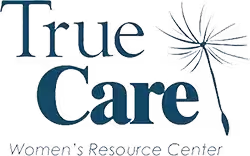The Morning after Pill is another name for something called emergency contraception (EC). It is medication that you take after unprotected sex to try to prevent pregnancy. There are a few different types such as Plan B One- Step, Next Choice, or Ella. Both Plan B and Next Choice use the medication levonorgestril (a high dose of birth control hormone). Ella is a medication called Ulipristal. What is the big deal…why would anyone be against the Morning after Pill?
Safety Concerns
All medications have the potential to hurt you. As with anything you put into your body there is a chance you could be allergic to it and have a reaction. Some signs and symptoms of a reaction are: itching, little red bumps on your skin called hives, and difficulty breathing/wheezing…sometimes an allergic reaction can even lead to death if no emergency help is available.
Most medications have side effects. One must understand the risks and weigh them with the benefits before taking a new medication
According to the Mayo Clinic, side effects of emergency contraception include:
- Nausea or vomiting
- Dizziness
- Fatigue
- Headache
- Breast Tenderness
- Bleeding between periods or heavier menstrual bleeding
- Lower abdominal pain or cramps
- Diarrhea
Moral Controversy
Emergency Contraception is controversial for the following reasons.
Fear that women may believe, “I can just take Plan B so I don’t need to worry about getting pregnant tonight.”Sadly, this thought process can take away a protective fear of Sexually Transmitted Diseases (STDs) and pregnancy that might have otherwise helped a woman to say, “No.” Emergency contraception does not protect a person from STDs. The medication has health risks and can occasionally fail at preventing pregnancy.
Fear that it may cause an abortion. There are concerns among many with strong moral convictions against abortion that emergency contraception prevents a fertilized egg (embryo) from implanting in the uterus, and therefore aborts a new life. Science (Embryologists) agrees that life begins at conception at which time the egg and sperm unite to form a whole separate unique being. When intercourse occurs, if the egg has already been released from the ovary it takes very little time for the sperm to reach and fertilize the egg. By the time a woman takes emergency contraception, a new life may already have begun. If EC blocks the implantation of the embryo into the wall of the uterus, they new life is aborted. Because most women don’t know when they ovulate, the will never know whether they prevented conception or caused an abortion.
What can we do Instead?
The best option altogether is to abstain or wait for sexual relations until you are ready to be a parent. True Care Women’s Resource Center http://www.truecarecasper.org recommends abstinence until marriage as the best way to prevent STDs and unplanned pregnancies. We understand that there is not one perfect person in this world and people are bound to make mistakes when they are dealing with the intense feelings of love and attraction. Someone may ask: “What if a woman has already messed up? What do you do when it is too late to turn back the clock? What if it is too late to make a better choice?”
First of all, she needs to take some deep breaths and not panic (easier said than done). Next she can think about where she is in her reproductive cycle. If she is not familiar with her menstrual cycle, True Care has a program called Feminine Genius that can help her understand how her reproductive cycle works and help her begin to make good choices for her sexual health. A female is only fertile about 1/4th of the month. The other 3/4ths of the month, she is not fertile. During the infertile part of her cycle, she will not get pregnant even if she had unprotected sex. What if she’s in that small fertile part of her cycle? If so, she could be at risk to get pregnant.
Secondly, the thought of being pregnant may evoke further fears and thoughts of utilizing EC. She will need to consider the potential risks and side effects. She will also need to consider whether or not she wants to risk aborting a new life. We urge her to take time to evaluate her beliefs and feelings about abortion and the possibility of ending a new human life before taking emergency contraception. We want her to be certain that she makes a clear, conscious decision that she can feel good about.
